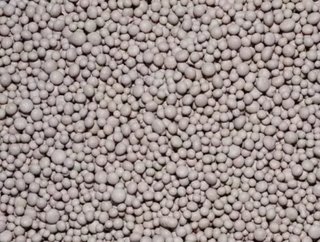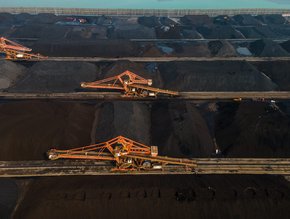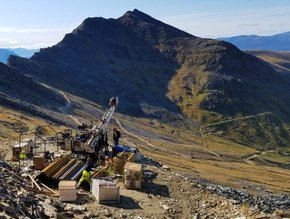Article
Smart Mining
Sirius Minerals and the £2.4bn potash project
By Dale Benton
May 17, 2020
undefined mins

Sirius Minerals, who weve talked about before, has announced that it has entered stage two of its £2.4bn UK Potash mine project. But what exactly...
Sirius Minerals, who we’ve talked about before, has announced that it has entered stage two of its £2.4bn UK Potash mine project. But what exactly is Potash? And why is the North Yorkshire area of the UK the ideal place to build a mine project focused on it?
- Potash has roots, (yes) in agriculture, namely fertiliser. Potash is a mixture of potassium compounds and potassium-bearing minerals
- The name itself quite literally derives from “Pot ash” where wood ash was collected in metal pots. Wood ash is a rich source of potassium, which is one of the world’s three most important fertilisers.
- Potash was originally discovered in Germany in 1856, where potash mining was practiced only in Germany until the beginning of the 20th century
- Sirius Minerals’ mine will technically be for the exploration and development of polyhalite. Polyhalite is a hydrated sulfate of potassium, calcium and magnesium. Which is where potash comes in – the composure of polyhalite contains 14 percent potash
- Sirius has also trademarked the name “POLY4”, which is the name of its polyhalite products which delivers “four essential macro-nutrients and many vital micro-nutrients, in one simple and efficient fertilizer product.”
- The North Yorkshire area pinpointed for the Sirius’ Potash project is home to the largest, highest grade resource of polyhalite to be found in the world
- To put that into context, Sirius’ states that there is a Probable Mineral Reserve of 280 million tonnes of polyhalite
- An estimated 95 percent of world potash production is used as fertiliser, with the remaining five percent used in chemical and manufactured products
- Canada (particularly the Saskatchewan area) is currently the largest Potash producing country, with a production of 11 million Mt, closely followed by Russia with a production of 7.4 million Mt
- Total potash depotists around the world are believed to amount to around 210 billion tonnes, with 16 billion recoverable using current technology
- Potash can actually be found in certain foods. Potato, carrot, onion, apple, grapes, beans – all potassium rich foods. Its properties can help normalise blood pressure and regulate water balance
- Potassium is the seventh most common element occurring in the Earth’s crust, accounting for 2.4% of its mass.
- Global potash consumption is currently 60Mtpa, with this expected to grow to 70Mtpa by 2020 and 80Mtpa by 2025 according to Fertecon
- There are two methods that are commonly used for mining potash. The Underground Mining method and Solution method. Underground mining involves continuous miners or borers digging the ore, which is then transferred on the underground conveyor belts. Material is then hoisted to the surface for processing. The Solution method involves the injection of a brine solution into underground potash bearing seams. This dissolves the potash bearing minerals and this potash rich solution is brought to the surface for processing.
The September issue of Mining Global Magazine is live!
Follow @MiningGlobal
Get in touch with our editor Dale Benton at [email protected]
Share
Share
- Brazil’s Petrobras seeks bidders for potassium mining rightsSupply Chain & Operations
- Anglo American close to deal to rescue Sirius MineralsAutomation & AI
- Sirius Minerals finds $3bn backer for English potash mineSmart Mining
- Sirius Minerals signs EPC agreement for 250,000 tonne polyhalite port facilitiesSustainability
RelatedContent






